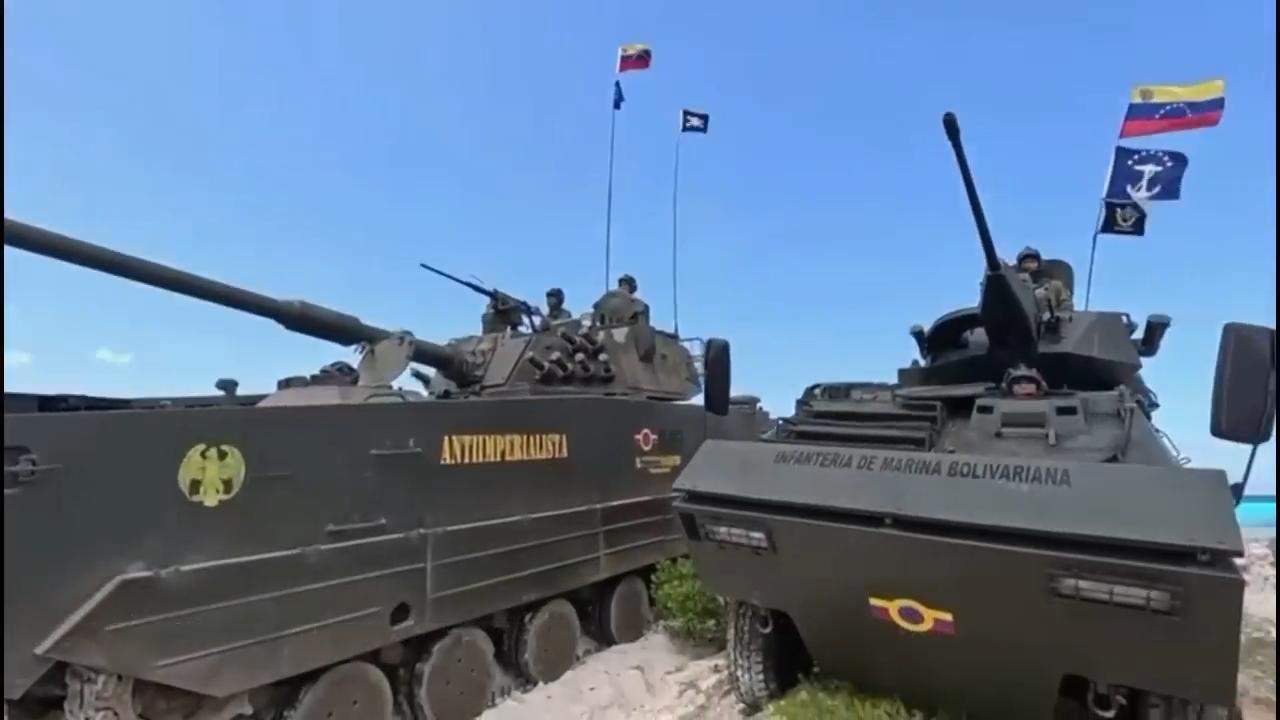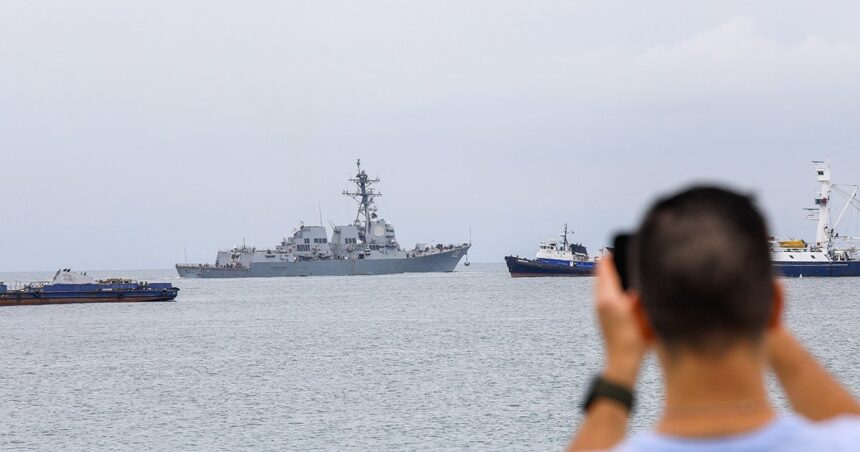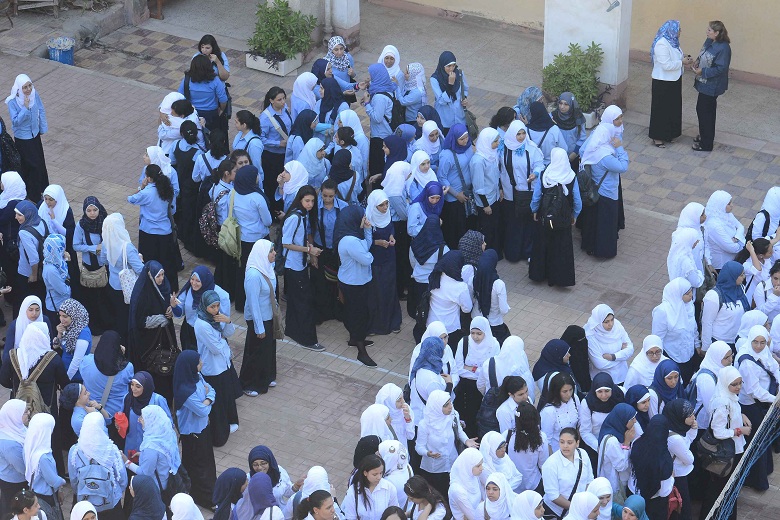The deployment of at least seven US warships and a nuclear-powered submarine to the southern Caribbean near Venezuela’s coast has thrown a stark light on the widening divisions across Latin America, alongside the apparent unwillingness of other regional powers to support President Nicolás Maduro’s government in its standoff with the United States.
In line with the White House’s policy, countries such as Argentina, Paraguay, and Guyana have designated the “Cartel of the Suns” as a “terrorist” entity. The United States accuses Maduro of leading the organisation, a claim for which there is no expert consensus.
While the White House links the naval deployment to its efforts to combat drug cartels, Maduro sees it as a move by US President Donald Trump to promote regime change and seize Venezuela’s natural resources. The country holds the world’s largest proven oil reserves, estimated at over 300 billion barrels.
Maduro insists the situation is not one of “tension,” as described by the media, but an act of “aggression” by the United States. Despite the perceived threat, particularly after Trump announced at least three attacks on boats suspected of carrying Venezuelan smugglers, there has been no strong, unified condemnation from across Latin America, where many nations are led by left-wing presidents.
However, Venezuela conducted military exercises on Thursday in the Caribbean island of La Orchila. The government said it’s preparing its army after the activity of US warships near its coasts.
A muted leftist response
The region’s heavyweights, Brazil and Chile, opted for a joint statement through the Community of Latin American and Caribbean States (CELAC), expressing “deep concern over the recent foreign military mobilisation in the region.” The statement referenced the declaration of the region as a “zone of peace” and the treaty banning nuclear weapons in Latin America, an allusion to the presence of the US nuclear-powered submarine.
However, given the disputes many member states have with Maduro, it appears some CELAC members did not agree with the document. Chile has not issued a separate statement, while Brazil’s President, Luiz Inácio Lula da Silva, has invoked the 1968 treaty to keep the region nuclear-weapon-free. At a recent virtual BRICS summit, Lula described the US military presence as a “factor of tension.”
The strongest condemnation came from Colombian President Gustavo Petro, who denounced an attack on a boat allegedly carrying drugs from Venezuela, in which the Trump administration said it had eliminated 11 “terrorists.”
“If this is true, it is murder anywhere in the world,” the Colombian leader wrote on X, formerly Twitter. “For decades, we have arrested civilians transporting drugs without killing them.” Similarly, Cuban President Miguel Díaz-Canel condemned the attack as an “illegal, cowardly, and dangerous provocation.”

Internal divisions and external pressures
Mariano Fernández, a former Chilean foreign minister, believes the muted reactions are due to a fragmented region that can no longer achieve consensus. “It is very difficult to condemn a military presence in international waters to combat drug trafficking,” he told Asharq Al-Awsat. “Like any dictatorial regime, Maduro is exploiting what he can from this American provocation to defend himself internally, calling on militias and the army.”
Maduro has indeed called on the population to prepare to defend the country by joining the “Bolivarian Militia,” a civilian branch of the armed forces.
Meanwhile, Venezuelans are trying to discern fact from fiction amid a flood of social media messages about the US military presence. Nirlay Andrade, a member of the Venezuelan Communist Party’s political committee, said the ruling party is “unsuccessfully trying to use the situation to reconnect with the population,” arguing that Maduro will struggle to achieve national unity while the population faces low wages and the arbitrary imprisonment of activists.
She sees the US deployment as an escalation that reflects Maduro’s international isolation, noting that “no one wants to confuse their rejection of US intervention with support for Maduro.”
A high-level source in Brazilian diplomacy, speaking on condition of anonymity, said Brazil’s caution is linked to its own problems with the Trump administration. Trump has criticised the prosecution of former right-wing President Jair Bolsonaro and imposed 50% tariffs on Brazilian products. “We have our own problems, and the situation is already tense, so we will choose our battles,” the source said.
Bernabé Malacalza, an Argentinian expert on geopolitics, noted that Brazil is “not speaking for the region” and that its internal situation is “very complex.” He added that the erosion of Brazil’s relations with the US has pushed Lula’s government to look more towards Asia and the BRICS group.
At the same time, Malacalza points to a “blocking” group in Latin America, led by right-wing Argentinian President Javier Milei, which is “aligned with Trump.”
Mexico, another key regional player, has preferred to stay out of the dispute. President Claudia Sheinbaum stated that the principles of non-intervention and the peaceful settlement of disputes are enshrined in the Mexican constitution.
Modesto Emilio Guerrero, a former Venezuelan socialist deputy and a co-founder of the ruling party, described the current political landscape as a significant shift from a decade ago, when South American leaders were seen to act more proactively and collectively. He attributed the change to a “moderation in political, economic, and financial programmes in recent years, and their connection to the US economy, which makes reactions weaker.”


